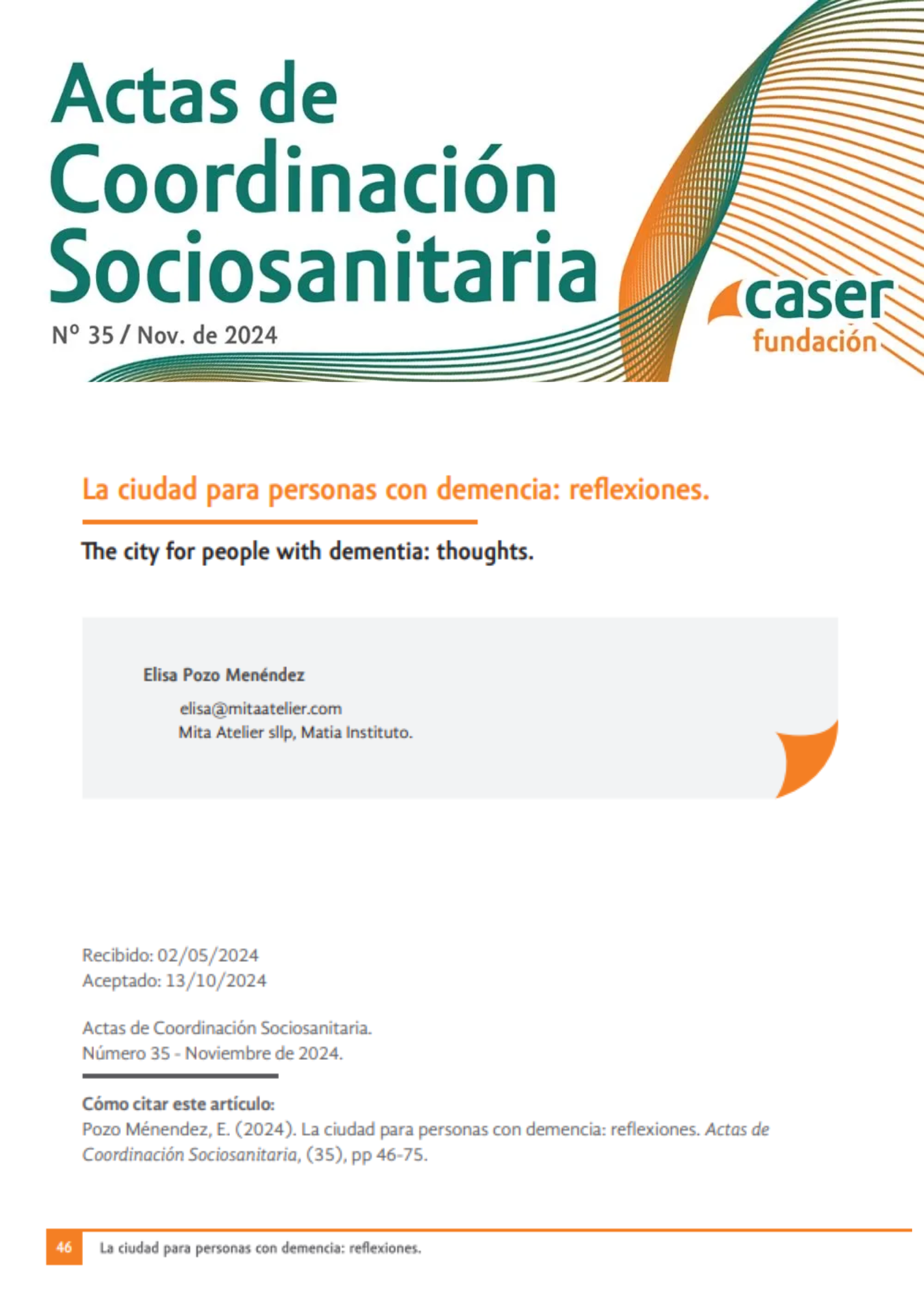The city for people with dementia: considerations

This article presents the main results of the author's doctoral thesis ‘The city for people with dementia’ (2023), as well as reflections from the Seminar ‘Villages of Care/Villages of Life’ held in February 2024. Based on the theoretical framework of the relationship between architecture and social transformations in terms of building typologies intended primarily for people with functional diversity and the elderly, three different approaches are presented.
Firstly, the reflection on the new ‘dementia village’ model, which seeks to create safe residential environments for people with dementia, prioritising their autonomy and identity by recreating urban neighbourhoods with living units, gardens and a variety of services. On the other hand, the community model of care, where integration into the community is complete, generating continuity in the lives of people throughout their life process and from the moment they start to need support and professional care services. Finally, the possibilities offered by urban environments for their transformation and creation of dementia-friendly environments.
In contrast to traditional care homes, these three models encourage community living and independence, which can be inspiring for further progress in good care for the elderly in the architectural field.
